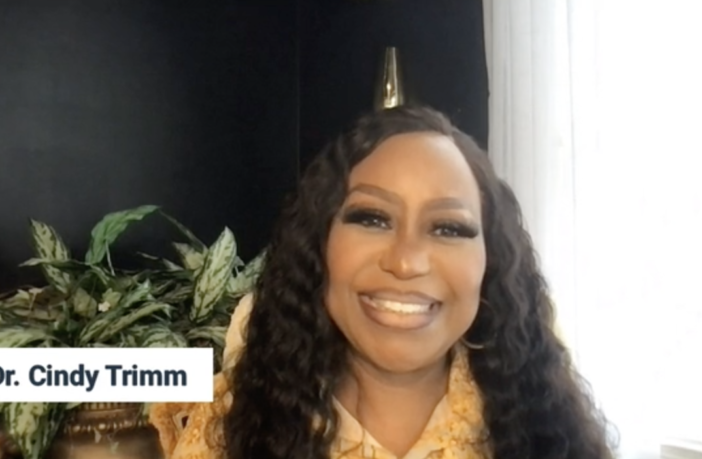Cindy Trimm is a life strategist and psychotherapist who helps the Black community with mental health issues and finds ways to combat depression, anxiety, loneliness, and the substance abuse associated with mental illness. Through her work, Trimm uses mechanisms to help individuals deal with triggers through self-care, mood-boosting, exercise, relaxation, hobbies, and creating a vision for their life.
Trimm spoke with rolling out about mental health in the Black community, using self-advocacy and self-care, and what mental health looks like for the younger generation.
What should we know about mental health in the Black community?
Mental health to me is having a yardstick by which a person can measure the level of their mental, emotional, and spiritual well-being. It’s about having a sense of well-being, not just being healthy, but having that sense of well-being where you’re in control of your life, in control of your destiny, you don’t have that feeling life is happening to you and that you’re a victim of circumstances or a product of your environment. You have a sense of what I call self-advocacy, that no matter what is happening to you, you have the resilience, mentally and emotionally, to overcome it.
What are some ways that we can use self-care?
It starts with accepting your personal life challenges as normal. View it as self-discovery, and that starts with what I call “me moments,” carving out some time in the day, 30 minutes a day, for envisioning where you want to be, not what you don’t want, because if you keep talking about what you don’t want to do, it’ll increase in relevance, and it will multiply in impact. If you talk about what you want to increase in relevance and multiply in impact. Spend some time envisioning, spend some time for emotional and mental flossing, where you sit and objectively look at things that have happened to you.
How can we have a conversation about mental health with the younger generation?
Generation Z is way up there, over 90% of them feel like they’re stressed out and they have issues that they have to deal with. Mental health issues, issues with loneliness, and then social media doesn’t do us any good, because we have what we call friends, and it’s really shaping what we feel is a community, when in fact, this is not really a community, and those people are not really your friends, they’re strangers. We have a pseudo community now with social media where we can hide behind our avatar, so if people are falling in love with your avatar, that social persona that you’re projecting, they’re not actually falling in love with you, and if they’re not falling in love with you, you’re missing out on that affirmation of self to be able to say you’re okay, this is leading to more and more loneliness, and loneliness is an epidemic now.
If I’m falling in love with your, your avatar, that’s still not acknowledging and affirming you, that means I still have that sense of a lack of connectivity and it’s connecting to one another that makes us human. Dr. Fauci back in the day was talking about the first wave and the second wave of the pandemic. I think there’s going to be a third or fourth wave and it’s not going to be a pandemic of physical ailments and disease, it’s going to be a pandemic of mental health. So I call that the fourth wave.



